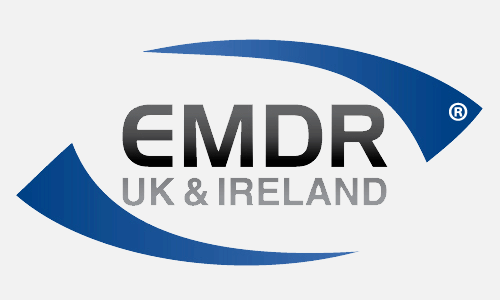Trust is a risk you have to take

Richard and Sally’s recent columns have explored several of the
common problems that plague couples relationships. However, it’s not all
doom and gloom and in this article they are considering some of the
factors helping couples to live “happily ever after”.
Whilst it’s true that relationship breakdown has become commonplace,
Sally and Richard have identified respect and understanding as two of
the factors present in successful relationships.
Sally: Another critical aspect is trust, which is
underpinned by understanding, too. It’s harder to trust you if I know so
little about you that my understanding of you is very limited. It’s
also important to recognise that a high level of trust between two
people is needed for open and free communication, which in turn leads to
deeper understanding. However, this level of communication is much more
difficult when people are “on guard” because even our best intentions
are likely to be misunderstood.
Trust always involves taking a risk. When I trust you, I make a
choice: to put some part of my life in your hands, trusting that you
will not let me down. It makes me vulnerable, which is why such strong
emotions come into play when trust is misplaced. This also explains why
understanding is so important, especially in the early stages of a
relationship. The more understanding I have of you, the more informed I
am about how trustworthy you are, which in turn will help me to
determine whether and/or how far I should trust you.
You cannot build a good relationship without being a trustworthy
person. But trust takes time to build; and it’s a fragile quality, which
once broken, is difficult to mend.
Richard: I recall couples where trust had broken
down because one partner had been unfaithful to the other. Disloyalty
and betrayal are big destroyers of trust.
But I’ve also noticed that it’s not always some dramatic event or
personal tragedy that destroys trust. Trust can be eroded over time
through an accumulation of small betrayals: breaking promises about
getting home after work at a specific time… being unreliable… being
careless or thoughtless about taking your share of household chores…
being emotionally so unreliable that the other person doesn’t know how
you are going to react. All these undermine trust between a couple.
It’s also true that all forms of dishonesty, breaches of confidence
and talking behind your partner’s back damage trust. Jealousy is bad for
trust, too. If a person is jealous, they’ll often check up on you in
some way. But that checking is as clear a statement of “I don’t trust
you” as could be made.
Sally: If one half of a couple has done something to undermine the relationship, what can be done to rebuild trust?
Richard: The main responsibility clearly falls on the one whose actions have caused the breach.
Let’s
call that person John, for the moment. First, and possibly this is the
toughest part of the process, John needs to say, “I’m sorry.” He needs
to acknowledge his responsibility.
Secondly, he has to take steps to avoid repeating the action. An open
discussion with his partner about how to repair the situation could be
useful. One way would be for the couple to do the following work
together.
Imagine that tomorrow night, a miracle happens and trust is restored.
However, since both John and his partner were asleep, next morning when
they wake up, neither knows that a miracle has happened. Now, ask
yourselves these questions:
- What would John’s partner notice about what he says and how he acts,
from the moment they got up and over the next few days, that would show
her that a miracle had happened and that John was trustworthy?
- What would John notice about himself that would tell him that a miracle had happened to make him trustworthy?
- What would his closest friend notice about John that would confirm the miracle?
- What would be the first sign that things are on the right track?
- What events or circumstances might come up over the next few days or weeks that could undermine the miracle?
- What steps could counter these?
First, she needs to try to forgive him. She won’t, and should not,
forget what has happened, but she can make a conscious decision not to
use the issue time and again as a weapon against John.
She needs to demonstrate trustworthiness to John. Remember that it’s
impossible to produce trust in a relationship if you’re not
trustworthy.
She’ll be taking risks, so she should play to John’s strengths
rather than his weaknesses. Let’s assume John’s problem is that he’s
unreliable, but he’s much worse at keeping his promises about coming
home from work than he is at keeping his promises to take responsibility
for looking after the children on the weekend. To start with, she
should hold him to his promises about the children rather than making
getting home on time the issue.
She should compliment him when he succeeds, expressing confidence in
his ability to maintain a new trustworthy behaviour pattern.
Finally, as John demonstrates his trustworthiness in small ways, she
should increase the responsibilities his trustworthiness merits. When
he keeps his promises in one area, she should risk believing he’ll
succeed in others. And if he fails, give him a second chance! We all
need second chances. Time and time again we need second chances.
Sally: And now, another important question. How could John’s partner encourage him to become trustworthy?
Richard: There are five ways.
Sally: Sometimes trust has been so broken and people
so hurt that something has to happen before a couple can begin to go
through the process you’ve just described. Hostility and trust don’t go
together.
When I see couples in this sort of situation, I suggest they first do
things together to engender good feelings. Perhaps going on a date…
spending time alone together… eventually by taking the risk of saying,
“I love you”. Only when some couples have reached this point can they
get down to the business of working out together how to rebuild trust.
The one area we haven’t touched on yet is love. I think we’ll look at this in detail next time.
Services
Our approach to therapy
- Overview
- Supervision
- Systemic Psychotherapy
- Cognitive Behavioural Therapy
- Co-mediation
- SFBT (Solution Focussed Brief Therapy)
- Appreciative Inquiry
- Case Examples
- Non Violence Resistance
Testimonials
Following a car accident, I suffered terribly with a fight or flight response when driving. I did not know what this anxiety was and tried for months to recover on my own. After a particularly severe anxiety attack, I realised that I needed to get help. EMDR therapy was incredibly effective. My anxiety was linked specifically to the accident and in one session the anxiety was dispersed. I literally walked out of Swift Counselling, got in my car and drove with no anxiety from that moment on. I am thrilled with the results, thank you.

